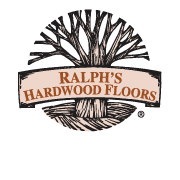In every home, the floor is the foundation, the base upon which all other decorating decisions are made. While you can always change the furniture or repaint walls and ceiling, the floor is a more permanent choice you have to live and work with. Depending on the species of wood, the appearance of the floor, i.e., the surface, color, pattern, or hardness, may vary.
Hardwood floors provide that charming, rich, and classic look, which only gains character with time. However, choosing a hardwood floor is not so easy, as there are several considerations you need to take into account if you want your floor to work with your space. Having children, living near the beach, or owning pets can all influence your decision.
What is Your Lifestyle?
The first step in the process of choosing a hardwood floor is to consider your style, personal preference, lifestyle, and the construction of the house. It's not only about selecting a hardwood floor based on aesthetics; it's also about functionality.
For homes with children and pets that go through a lot of daily wear and tear, homeowners should pick a durable type of wood. The harder the wood, the better it will resist countless dents and scratches. Hickory, maple, or oak have a high level of hardness, while cherry, pine, and walnut are softer and more susceptible to damage. Another factor of the floor's durability is the wood's finish and the underlayment material. Factory finishes typically last longer than self-applied ones. Other factors are humidity and moisture, both of which can affect your wooden floor, causing swelling or warping.
What Wood Floor Color Should You Choose?
The color of your hardwood floor has a strong impact on how the room is perceived. For instance, a dark floor can 'swallow' a lot of light, but it also creates a sense of coziness and warmth, while a light wood floor reflects the light and adds more space to the room.
A dark-colored floor gives off a timeless look, and it works great with whites and grays, and simple, clean-lined furniture. On the other hand, the light-colored floor can work with a number of interior styles, from tailored and traditional, to updated and modern.
Should You Choose Engineered or Natural Hardwood Floor?
There are several pros and cons to both sides; for instance, engineered hardwood has a bigger tolerance for moisture, while natural hardwood can shrink and expand leaving small caps or slightly raised edges. However, natural hardwood has a distinguished richness to it that engineered wood can't replicate. Engineered wood is also built to last longer, but it has a limited number of times it can be refinished. In contrast, natural wood can be refinished multiple times, which allows for more options when it comes to changing the color of the floor in the future.
Take Away
A lot goes into choosing the right hardwood floor. From your lifestyle, budget, maintenance needs to personal taste and style. Whichever type you choose, hardwood flooring adds a beautiful touch to every room of the house. Would you like to talk with us about hardwood floors? We’re here to help. Feel free to contact us, or you can come to visit our showroom.















